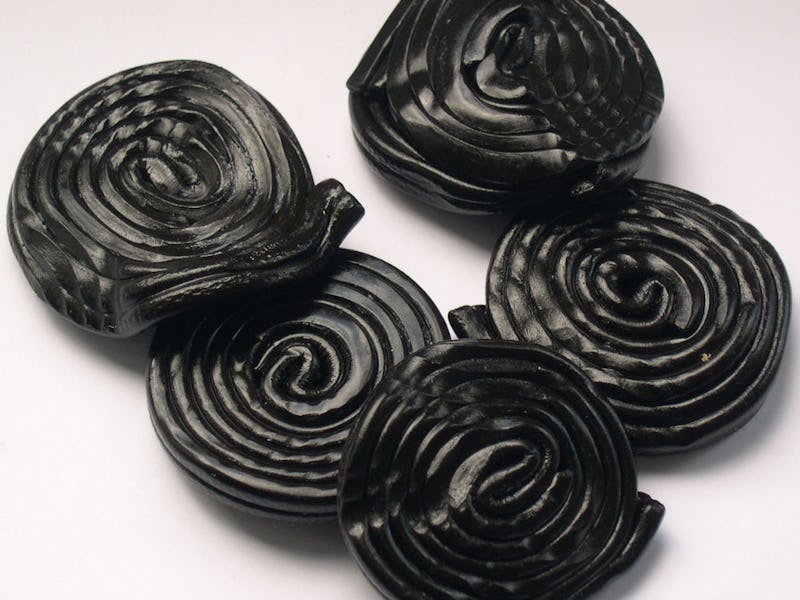FDA Warns Against Eating Too Much Black Licorice This Halloween
A sweetener found in licorice could be potentially fatal.

Right in time for Halloween, the U.S. Food and Drug Administration has issued a warning — not about poisoned candy but about eating too much of a certain love-it-or-hate-it candy: black licorice.
This treat (or trick?) could cause high blood pressure, an irregular heartbeat, and other potentially fatal heart conditions, the FDA warns. And it wouldn’t take a crazy high amount over a short period of time for the effects to show, according to Joan Salge Blake, a Boston University nutrition professor.
Although the warning specifically calls out those 40 and older, people of all ages should still avoid eating drastic amounts of black licorice, Blake tells Inverse.
“Will it be problematic for people under 40? Probably not, no,” Blake says. “No matter what the age is, don’t eat so much of it.”
This gives black licorice critics another reason to hate on this great candy. Ugh.
The FDA warning says that licorice consumer reports show that people over 40 could land in the hospital after consuming just two ounces of black licorice — or about five sticks — each day for two weeks. Black licorice gets its flavor from a compound called glycyrrhizin, which scientists say is 50 times sweeter than regular cane sugar. Derived from licorice root, accumulation of this compound causes potassium levels to fall drastically, which could lead to abnormal swelling, irregular heart rhythms, and even heart failure.
Although the same compound is present in licorice-flavored products like Twizzlers and Sambuca liqueur, the FDA warning doesn’t include these, and you’re safe to keep eating them. Instead of glycyrrhizin, most licorice-flavored foods instead use anise oil, which safely achieves the same taste and smell as licorice. Blake warns fans of licorice-flavored products to be diligent in checking ingredient lists — especially those that use licorice root dietary supplements — to ensure they don’t contain glycyrrhizin.
A sweetener in black licorice can cause heart problems in people over 40 at high enough concentrations.
While most of the sugary goodness you enjoy this Halloween won’t contain this potentially dangerous ingredient, it doesn’t mean you should necessarily go crazy in eating as much candy as your sweet tooth desires. You’re likely to go over your daily intake of calories and sugar on Halloween, which is of course unhealthy and can cause other health issues. While Blake doesn’t say you shouldn’t indulge in candy at all, she warns people not to get into a candy-snacking habit that could easily occur again and again and cause you to gain weight.
With their warning, the FDA shared a very serious looking animated video complete with witch cackles and cartoon bats flying around. The video ominously warns: “Don’t get tricked into eating too much black licorice.”